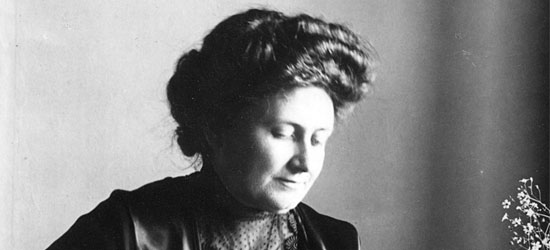Maria Montessori

Born in Italy in 1870, Maria Montessori devoted her 81 years to improving the lives of children throughout the world.
Montessori was known for having the confidence and perseverance emphasized in the educational system she designed. Trained as Italy’s first female physician, she overcame numerous personal and professional hurdles to complete her education and to conduct her work with children.
Her medical practice initially focused on children with intellectual and developmental disabilities, and she gradually expanded into work with children of all abilities. Relying on her scientific training, Montessori carefully observed children and tested various materials and teaching styles to determine the best ways to keep them engaged.
As her work progressed, she realized that children had remarkable abilities to learn for themselves when placed in an environment suited to their natural development. Of her many innovations, she wrote, “I did not invent a method of education, I simply gave some little children a chance to live.”
The success of Montessori’s schools soon reached worldwide acclaim. However, with the rise of fascism in Europe, many Montessori schools were closed, and Montessori herself was forced to move multiple times. Despite these challenges, her legacy and system of education persisted, and her later work focused on education as an instrument for peace.
Over 100 years later, we continue to celebrate Montessori’s amazing insights about human development, along with her fundamental love and respect for children.